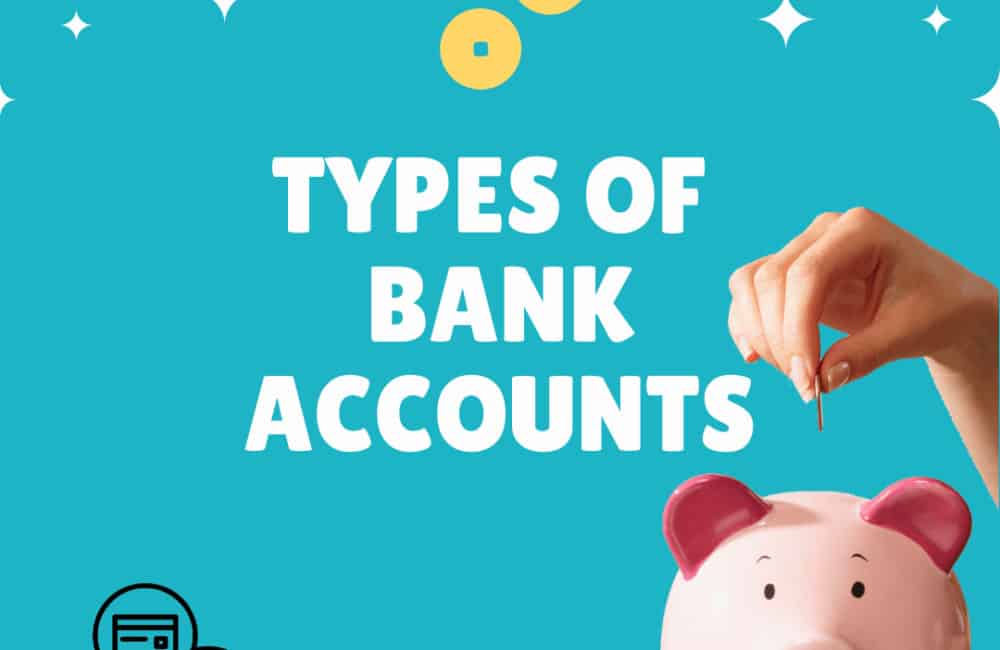Banks provide the much-needed security to our money. Modern banking also makes the process of handling money so comfortable, that you can do virtually everything through the bank’s application. This includes almost all services from creating an account, managing the money, doing transfers to investing the money, and closing the account. Gone are the days when we had to stand in line for hours for simple bank work to be executed.
Should You Have A Bank Account?
Of course, you must. This is regardless of whether you are employed or not. In fact, you must create a bank account as soon as you are eligible to do so. A bank account helps you save and keep track of money. It provides a means for you to invest in other assets as well. Depending on the type of account you have, the bank can provide yearly interest on the money as there are different types of bank accounts in India.
Money in bank accounts is a way to have money in liquid form. You can use it whenever a situation strikes, for emergency and non-emergency purposes. Through your ATM card or a cheque, you almost get the money from your account immediately.
Having a bank account is a form of identity which is accepted by some government institutions. In fact, a bank account is a prerequisite for certain kinds of professional work as well.
Also, please know the fact that the money kept in a legitimate bank is probably the safest way. It is way safer than storing your money at home, which may get damaged or stolen. Moreover, money stored in a bank is insured by the Government and your money is safe even if the bank goes bankrupt or some similar issue occurs.
Through modern bank accounts, you can even pay your utility bills directly through the banking portal. This includes electricity bills, water bills, phone recharges, etc. If you connect your bank account to a legitimate lender, they can take the monthly/yearly payments directly from your bank account.
Looking to know what are the different types of bank accounts in India? Here is the complete list.
Types Of Bank Accounts In India – Explained
1) Savings Account
This is one of the most common types of bank accounts in India, and this is where your banking journey will mostly start. As the name indicates, savings accounts can be held by an individual or two parties (joint account). The general objective of a savings account is to save money. Keeping a minimum amount of money in your bank for a certain period of time in a savings account generates interest.
But of course, you can always withdraw the money from your savings account using a debit card, passbook or cheque. Whenever you wish, you can also deposit money to it either through the bank physically or by transferring money from another account.
When you open a savings account in India, typically, you will be provided with an account number, a cheque book, a debit card, and net banking details. In most cases, the savings bank account gets activated immediately. To activate the debit card, you will have to transact the first time through an ATM that belongs to the bank you have created an account in (the branch can be different though).
Therefore for every savings account, you will have the following details which you will also send to someone who needs to transfer your money to this account:
- Account Number (unique identification number for your account)
- IFSC Code (unique code identifying the branch of your bank)
- Account Holder Name (the name you have provided for your account)
- Bank Name and Branch
Some other pointers to know about savings account:
- While there is no limit on the times you can deposit an amount to your account, there may be limitations on how many times you can withdraw the amount. However, most accounts will not have this limitation.
- The typical rate of interest for the amount in your account is 4% to 6%
- Depending on the type of account, you may need to maintain a minimum balance (calculated either monthly or quarterly, or half-yearly)
- Almost everyone with valid identity proof is eligible for a bank account (either an individual account or a joint-party account depending on your age).
2) Current Account
A current account is one of the types of bank accounts for commercial purposes. All businesses that have been registered in India need to have a current account for their business-based transactions. Through these transactions, the businesses have to pay GST and other taxes for which they are eligible.
Be it a startup or a large corporate company, everyone will have a current account for their day-to-day company transactions. Each transaction through the current account needs to be proved with a receipt/invoice which will be used later for tax filing purposes.
Note that, unlike a savings account, the current account in India does not provide any interest on the deposited money. But the banks will have their own service charge which they will deduct on a monthly and/or yearly basis. Usually, with current accounts, there will be an overdraft feature but this comes with a fee. So, it is better to avoid any overdraft transactions.
Like other types of bank accounts, even current accounts are provided with the:
- Account Number (unique identification number for your account)
- IFSC Code (unique code identifying the branch of your bank)
- Account Holder Name (the name you have provided for your account)
- Bank Name and Branch
Some other pointers to know about current accounts that is similar to other types of bank accounts:
- There is no limit to how much money or how many times you can deposit in your account
- Typically, there will be a higher minimum balance required for current accounts
- Current accounts, through their net banking facility usually have invoicing, tax filing, and other business-related services which will not be available for savings accounts.
3) Salary Account
These are close to a savings account in India in terms of functionalities but is one of the types of bank accounts opened by companies in banks so that they can transfer the salary directly. Every employee of the company which follows this system is eligible to maintain a salary account to which they receive their monthly payments and other bonuses if any.
Here’s further details of one of the most common types of bank accounts in India:
- Unlike most savings accounts, the salary account can be maintained at a balance of zero. The employee can withdraw all their salary for other uses and there is no penalty they have to pay for this.
- There is no limit on the money deposited to the salary account by the company. These accounts also enable the holder to transfer funds to other accounts.
- There is no interest provided on the amount in the salary accounts.
- Employees can convert their salary account to a savings account as per their wishes. After some inactivity, these salary accounts may automatically be converted to savings accounts. The regulations, charges, and norms for the savings accounts are different.
The salary account also has the following details associated with it that is also similar to other types of bank accounts:
- Account Number (unique identification number for your account)
- IFSC Code (unique code identifying the branch of your bank)
- Account Holder Name (the name you have provided for your account)
- Bank Name and Branch
4) DEMAT Account
DEMAT Account is one of the types of bank accounts for those who want to trade stocks, mutual funds, and other financial instruments. These are essentially accounts where you can buy the stocks you have purchased in an electronic format. The long-form DEMAT account is called a dematerialized account. The purpose of a DEMAT account is to make the process of stock trading easy and compact. With DEMAT types of bank accounts, you can buy and sell stocks on the go.
Typically, DEMAT types of bank accounts are also linked with a trading account. Recall that the DEMAT account is where you store the stocks you have purchased in an electronic format. The trading account is the medium through which you buy and sell stocks. The transaction you make from the trading account gets debited/credited from/to the DEMAT account in India.
You can link the DEMAT account with a savings account from which you will put funds for trading. Many times, if you get a DEMAT account from the bank which also has your savings account, the two will automatically get linked. If the DEMAT account is provided by a non-bank service, then you can choose which savings account you want to link the DEMAT account to.
- DEMAT types of bank accounts can be accessed through a net banking interface or through a mobile app. The UI will tell you everything about the stocks, mutual funds, or other financial instruments you have purchased, including their value.
- Extensive documentation and application signing is usually required for DEMAT accounts.
- Depending on the financial instrument you trade, there may be fees for selling and buying (also known as brokerage charge). This brokerage charge varies with every DEMAT account provider.
- The DEMAT types of bank accounts are handled by two government entities – the NSDL (National Securities Depository Limited) and the CDSL (Central Depository Services Limited).
5) Fixed Deposit Account
These types of bank accounts are used to lock in funds for a period of time with the purpose of earning interest at maturity. If you have idle money, putting it in fixed deposits in India is one of the most common methods to let it earn interest and grow.
- While there is no limit on the deposit put into these types of bank accounts, you can only take the amount once from the account. At maturity, you will be the principal along with a specific interest. If you withdraw money before maturity, there may be some fees involved.
- You can check the interest rate before signing up for a fixed deposit account. This interest value depends on the specific fixed deposit account provider, the principal amount, and the time duration.
- The reason for the popularity of fixed deposits is that it typically provides interest more than the interests provided for savings accounts. It is beneficial for banks because they can hold a large sum of money for a fixed time period and for consumers, they get higher returns without the headache of market fluctuations, etc.
6) Recurring Deposit Account
These types of bank accounts are for those individuals who want to earn a fixed interest periodically. Unlike fixed deposits, the recurring deposit account in India gets a fixed interest amount every month. This is also a popular form of investment for individuals who want to skip the market fluctuation headache and earn interest higher than that of savings accounts.
- The minimum deposit amount at the starting of the recurring deposit varies from one bank to the other. They can get a fixed amount at the end of every month with the interest.
- On the other hand, a fixed amount is cut every month from your savings account and deposited in the recurring deposit account in India. Here it earns a monthly interest.
- The range of time period for putting money in a recurring deposit account varies from 6 months to even 10 years. It can also be stopped before the tenure ends without the loss of any interest value.
7) NRI Account
These types of bank accounts are specifically for non-resident Indians who wish to hold a financial account with a bank in India. Under this, there can be three types of bank accounts:
- Non-Resident Ordinary Account – These types of bank accounts are for their income earned in India and the amount is stored in rupees. While there is no limit in the amount of money deposited in the NRO account, you can also maintain any balance you want in such events. These accounts do earn interests and these interests are taxable. Through the NRO account, the NRI individual can open savings, current, or an FD account.
- Non-Resident External Account – These types of bank accounts are for their income earned outside India (in the country where they live), and the amount is stored in this account in Rupees. While there is no limit in the amount of money deposited in the NRE account, you can maintain any balance you want in such accounts. The interest and the principal are not taxable. The NRE account holders will have to face the conversation rates. Like the NRO account, the NRI individual can open a current, savings, or FD account through the NRE account.
- Foreign Currency Non-Residential Account – These types of bank accounts are for the NRI individual to store the money in the currency they earn, provided it is approved by the Central Bank of India. If the currency is not approved by the Central Bank of India, the NRI can choose any approved currency to convert from their earning currency to the approved currency. There is no limit on the amount of money deposited on the FCNR accounts, and you can maintain any balance you want in such accounts. The interest and the principal are not taxable. There could be currency conversions, and through the FCNR account, the NRI can only open a fixed deposit account.
Also Read: List of Private Banks in India – A Complete Guide
Summary Of The Various Types Of Bank Accounts – Comparision
| Account Type | Documentation Required | General Purpose | Interest Provided | Average Duration of Account Opening |
| Savings | Identify Proof + Address Proof + Photographs | Savings and expenditure | Yes | Immediate |
| Current | Identify Proof + Address Proof + Photographs + PAN Card + Cheque from Savings Account + Additional Company Level Documents (Certificate of Incorporation, Company PAN etc.) | Business transactions | No | 1-2 Working Days |
| Salary | Identify Proof + Address Proof + Photographs | Transfer of salary | No | 1-2 Working Days |
| DEMAT | Identify proof + address proof + Photographs + PAN Card + Bank account proof + Income proof | Stock / Mutual Funds / Other financial instruments trading and holding | No | 2-3 Working Days |
| Fixed Deposit | Identify Proof + Address Proof + Photographs | Grow money through Interest | Interest at end of maturity period | Immediate |
| Recurring Deposit | Identify Proof + Address Proof + Photographs | Grow money through Interest | Interest every month | Immediate |
| NRI | Passport copy + PAN copy + NRI proof (work permit or visa or overseas resident card) + Address proof + Cancelled cheque | Savings and expenditure / business transactions / grow money through interest | Yes | 3 Working Days |
Conclusion – Types Of Bank Accounts
These are the different bank accounts in India. To get started, pick the best bank around you (government or private), and check their website for account creation documentation. While savings accounts can be opened through the website, current accounts usually require you to visit the bank in person. Communicate with them your doubts and suggestions, and get started on your banking journey.
Frequently Asked Questions
What Is The Minimum Age To Open A Savings Account In India?
10 years through a legally appointed guardian.
How To Choose The Right Bank To Open An Account?
It must be a legitimate bank, easily accessible to you, must have a good number of branches and ATMs across the country, and must provide good customer service.
Can I Close My Account If I Don’t Need It?
Yes, you can. In some banks, you can do it online while in others, you have to visit your branch.
How Do I Get The Secret PIN?
You will get it couriered/posted to you by the bank. Using that, you can create your own new pin through an ATM or through the net banking / m banking platform.
Are There Any Costs For Opening An Account?
Usually, savings accounts and current accounts do not have any cost to open an account. However, DEMAT accounts have an opening fee.



